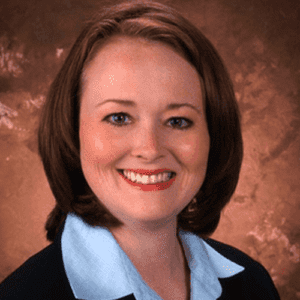
The purpose of this blog is to stimulate thought and discussion about important issues in healthcare. Opinions expressed are those of the author and do not necessarily express the views of CMDA. We encourage you to join the conversation on our website and share your experience, insight and expertise. CMDA has a rigorous and representative process in formulating official positions, which are largely limited to bioethical areas.
Sharing Experiences and Decreasing Isolation in Healthcare
November 16, 2017
by Autumn Dawn Galbreath, MD, MBA
An article crossed both my inbox and my Facebook feed this week entitled “Here’s Why Women Doctors Need Time Together.” It certainly wasn’t an academic study, but, as a woman physician, I was intrigued by the title. One sentence summarizes the author’s major premise: “There is an amazing power in gathering, shared experiences and decreasing isolation.” And I agree. When I watch my kids play sports or perform, I gather with other parents who share that experience—and we cheer as loudly as we can. When my marriage needs refreshment, my husband and I gather with other couples who share the experiences, both joyful and difficult, of marriage—and the isolation of our challenges is decreased. When I read a great book, I gather with my fellow literature-loving book club members to discuss it. In so many aspects of our lives, we seek community over shared experiences and we feel a little bit more connected and a little bit more known than we were before.
As Christians, the idea of gathering, sharing experiences, supporting one another and living in community is foundational. Isn’t that what Hebrews 10:24-25, among other passages, commands?
“And let us consider how we may spur one another on toward love and good deeds. Let us not give up meeting together, as some are in the habit of doing, but let us encourage one another—and all the more as you see the Day approaching” (NIV 1984).
Most of the Christ-followers I know take this to heart, gathering with fellow believers in some setting or another on a regular basis. Corporate worship, corporate prayer, Scripture reading and meditation, communion and teaching all serve to deepen our faith and to strengthen our bond with one another.
But as I consider shared experience and decreasing isolation, I wonder: As a Christian healthcare professional, do you ever feel a contradiction between those two parts of your identity? Do you ever feel that your faith is not welcome in healthcare, or that your medical identity is not welcome or—even worse—is taken advantage of in the church? I know I have felt both at times. From the conversations at work in which colleagues stridently disagree with my views on bioethical and moral issues, to those Sundays when someone essentially wants a consult on their sick child in the church hallway, sometimes it’s difficult to integrate my faith and my practice of healthcare. And sometimes that brings isolation. Sometimes I want those two defining parts of me—my faith and my medical training—to be considered together as important parts of my whole self. Those rare places where I can bring both of those parts of me are places I treasure. Places that offer respite. Where I feel understood. Where my isolation decreases. At the risk of sounding like a commercial (given that this is a CMDA blog), the vast majority of those places relate to CMDA. From the National Convention to Marriage Enrichment Weekends to commission meetings to my local CMDA chapter’s annual fall banquet, CMDA offers oases where my soul rests in feeling known and understood. Even my informal Bible study, in which I meet regularly with two dear friends, came out of CMDA. Of course, these gatherings offer more than just rest. They offer education, information, support and accountability. They meet needs that cannot be fully met in medical meetings or in Christian gatherings, because I can bring both parts of myself. As I am refreshed, I become a more congruent person, with the separate “boxes” of my identity integrated in a healthier way, and that healthy, congruent physician has so much more to offer to the patients and colleagues to whom she returns.
I think Rekha Chandrabose’s article hits the nail on the head: We “don’t have identical experiences, but we don’t have to start the conversation by [explaining some fundamental aspect of our lives to one another]….We can just breathe a little easier and know that the assumption in the room is that we all want [to reach similar end goals].” We can support one another as we grow into stronger, more faith-filled healthcare professionals and as we offer our patients both physical and spiritual healing.

